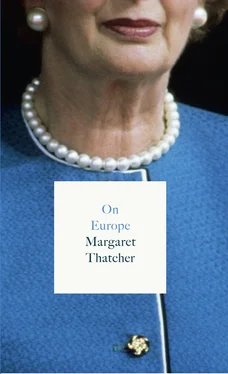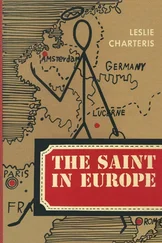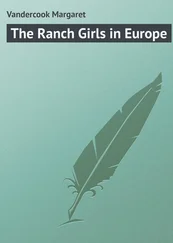But my opening generalisation is also in a different sense true of the Cold War. Although it was above all in the Soviet Union, that is outside a narrowly defined ‘Europe’, that Marxism became the ideology of empire, Marxism too had European roots. Karl Marx was, it should be remembered, a European thinker in a line of European thinkers; he developed his ideas by studying the experience of Revolutionary France and, I am sorry to say, he prepared his works by courtesy of the British Museum, long before they took political shape in St Petersburg and Moscow; and it was finally the liberal democratic values of the English-speaking peoples, spearheaded from Washington, which proved the ultimate antidote to communism. For a second time – for a third if you go back further to the First World War, though the issues there are somewhat more complex – salvation came from across the Atlantic.
At a personal level, I am conscious that much of my energy as Prime Minister was also taken up with Europe – and, if I had my time again, still more would have been so. Of course, Britain was not in those days fighting a war against a European power. But there was an increasingly intense struggle, all the same – one which focused on issues of great national and international significance. And, looking forward into the century which has just begun, there is every reason to imagine that this clash of aims and ideas is likely to continue.
I want, therefore, to examine now in some detail what is at stake – in this chapter from a mainly global perspective, in the next from a more narrowly focused British one. Having sketched out the problems, I shall also suggest some possible solutions. These will, however, not by and large be directed at ‘Europe’. Too many British and other critics have spent too long trying to do that: it is, to speak bluntly, a waste of time, because, as I shall seek to show, Europe as a whole is fundamentally unreformable. My suggestions will thus be addressed principally to those who are still not fully party to the project, and thus not fatally compromised by it.
NEW STATES FOR OLD
For most of the Cold War period, the boundaries of Western states marked out on our atlases seemed remarkably clear, and seemed likely to last. In Asia, and still more in Africa, the situation was, of course, more fluid and confusing; though even there it was generally new names rather than new borders that appeared, as one after the other European colonies gained their independence. The greatest divide, though, was between communist and non-communist states, with the former, whatever their notional titles and dignities, falling under the sway of the Soviet Union or China, and the latter enjoying political sovereignty under the formal or informal protection of the United States.
Since the end of the Cold War, however, that easily identifiable and comprehensible pattern has radically, and probably permanently, changed. Recent years have seen more new states emerge in Europe than at any time since the 1918–19 Versailles and Trianon Treaties. Not that most of these were ‘new’ in the sense that they lacked political antecedents. But certainly in the former Soviet Union and in the Balkans the maps have been redrawn in ways that still leave politicians trying to draw breath, and cartographers in profit. This, then, has been one feature of modern times.
Yet over the same period, another and contrary trend has also emerged. While the countries of Eastern and Central Europe, the Balkans and the old USSR have been trying to establish viable national institutions, the countries of Western Europe have been seeking to supplant and replace theirs with international ones. The last pretences that the European Union is an economic organisation of freely collaborating independent states are now being discarded. I very much doubt, for example, whether any of his Continental equivalents would echo Mr Blair’s promise that he would ‘have no truck with a European superstate’ and would ‘fight for Britain’s interests and to keep our independence every inch of the way’ – and then advocate a European single currency. 1Only in Britain does anyone still peddle such nonsense and expect to be believed. A fair-minded reading of recent history shows the way events are leading. Each new global development – the reunification of Germany, instability in financial markets, war in the Balkans, the rise of the American superpower – has served as a spur to create a politically united Europe. We are at or very near the point of no return. But Downing Street seems not to have noticed.
Of course, in one sense the confusion about the European Union’s true goals is understandable. No one has ever seen anything quite like it before. States, we must admit, are always to some extent artificial creations. After all, without the machinations of Bismarck there would probably have been no united Germany – at least not one based on Prussia. And much the same could be said of Cavour and his project for a united Italy based on Piedmont. Even the oldest nation states – Britain and France – are the result of deals and diplomacy and to some extent remain together because of them. States are thus the work of man, not nature.
This is even more so in the case of empires. They, above all, require able and committed elites employing skills and stratagems to sustain or expand them. Indeed, the fact that they are ultimately based on force not consent (though culture may supply some bonds in time) makes them supremely the fruit of artifice.
But how does Europe fit into this pattern? The emerging federal Europe is not, of course, a nation state. 2It is, indeed, based upon the suppressing or, as the enthusiasts would doubtless have it, the surpassing of the concept of national identity. Its actions are often aimed at creating a kind of ‘nation’ of Europeans – hence the European anthem, flag, cultural and educational propaganda programmes and the like. But this process of nation-building, it is understood by all concerned, will take time. And it will certainly have to follow, it cannot hope to precede, the process of institution-building on which the Euro-enthusiasts have embarked. In fact, the EU’s priority is clear: first make your government, the rest will follow.
Is the new Europe, therefore, an empire in the making? Here the parallels are closer, for its elite displays much of the arrogance and introversion of a supra-national ruling class. Yet Europe is clearly not an empire in other traditional and conventional respects. It is not a power possessed of great military might, or of over-arching technological supremacy, or of boundless resources – though again it wants to acquire or develop all these things.
Europe is, in fact, more like a state or an empire turned upside down. It lacks so much that would provide the solid foundations of statehood or imperial power that it can only exist through the satisfaction of accumulated vested interests. You only have to wade through a metric measure or two of European prose, culled from its directives, circulars, reports, communiqués or what pass as debates in its ‘parliament’, and you will quickly understand that Europe is, in truth, synonymous with bureaucracy. It is government by bureaucracy for bureaucracy – to which one might add ‘to’, ‘from’ and ‘with’ bureaucracy if one were so minded. It is not that the actual size of the EU bureaucracy in absolute terms is so staggering – at roughly thirty thousand employees it has a smaller staff than Birmingham City Council, though this figure leaves out the much larger number of national officials whose tasks flow from European regulation. No: what makes Europe the ultimate bureaucracy is that it is ultimately sustained by nothing else .
The structures, plans and programmes of the European Union are to be understood as simply existing for their own sake. Europe thus provides a new variation on Descartes’ ‘I think therefore I am’: in its version ‘I am therefore I do’ – though, like other multinational bureaucracies, it gets round to doing rather less and less effectively than it intended. Pope John XXIII was once asked by a visitor to the Vatican how many people worked there. He answered: ‘About half.’ This reflection may be applied to Europe too.
Читать дальше












